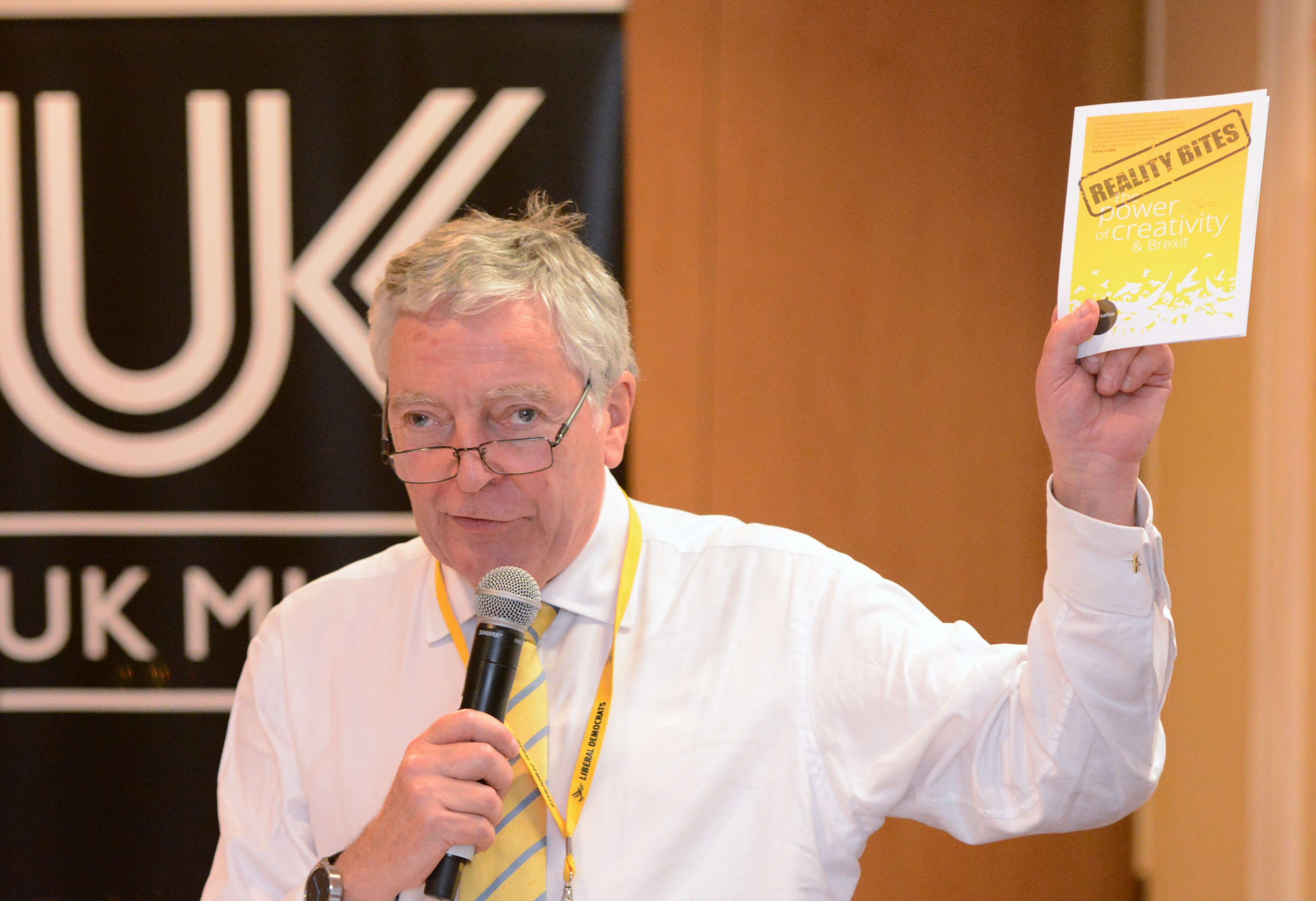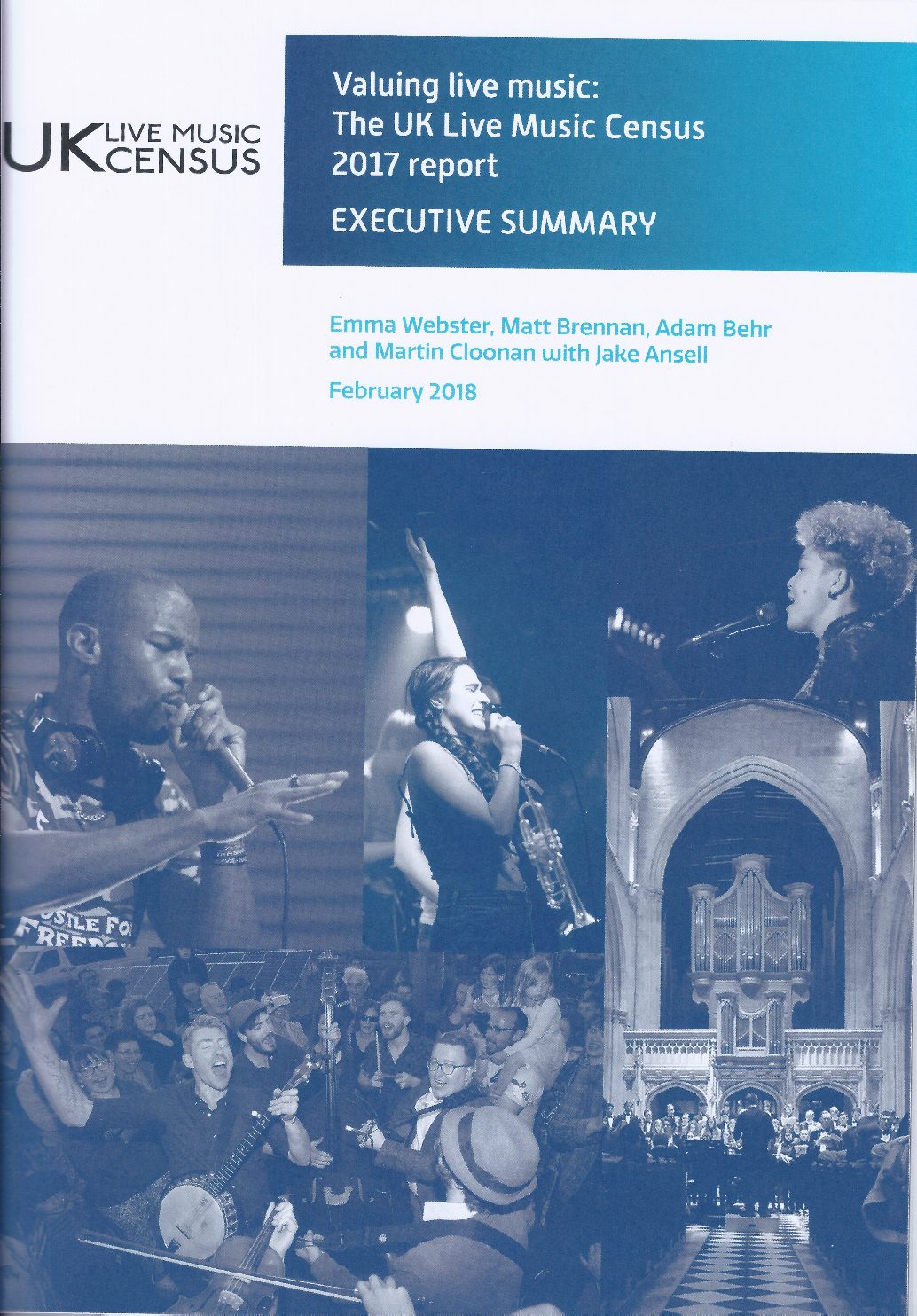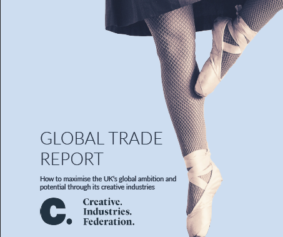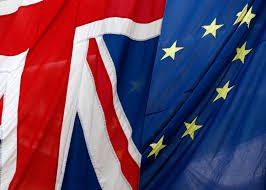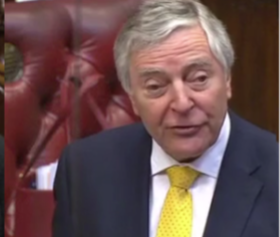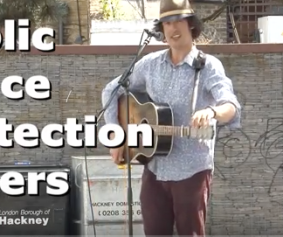UK Music Host Expert Panel on the Talent Pipeline at Lib Dem Conference
The panel, which was chaired by UK Music CEO Michael Dugher, took place at the Metropole Hotel on Monday lunchtime. Read more
A heartfelt celebration of the Life of Jonny Walker Campaigner Extraordinaire
At a wonderful jam packed service in Leeds Minister we celebrated the life and personality of Jonny Walker. This was my tribute.
Jonny was a man with a mission.
With his Keep Streets Live Campaign he was one the most determined, articulate and effective campaigners for a cause I have ever encountered. I first met him at a meeting of the London Busking Taskforce set up by the London Mayor’s Office to ensure that voluntary solutions to any busking issues were found rather than resorting to heavy handed bureaucracy.
Ironically as we met in City Hall a band of young musicians was being arrested for busking in Leicester Square.
I then hosted another meeting of the group at the House of Lords. Our work resulted in the launch of Busk in London and a new voluntary code of busking conduct across the city.
We were all veterans in one way or another of live music campaigns but Jonny was exceptional. Jonny was a active busker the length and breadth of the country and had experienced for himself the attempts by local authorities to restrict what they saw as a social nuisance but which he and we saw as an attempt to stifle street musicians and freedom of expression.
He had already shown how voluntary agreements on busking could work and had persuaded Liverpool and York councils to adopt a voluntary code of practice.
As a demonstration of his dislike for compulsory restrictions he took Camden Council to court for adopting an onerous busking licensing scheme under the London Local Authorities Act.
"What made Jonny so special was his mischievous sense of humour allied to his deep understanding of the legal issues involved."
— Tim Clement-Jones
What made Jonny so special was his mischievous sense of humour allied to his deep understanding of the legal issues involved.
A great example was when he and fellow buskers launched “The Church of the Holy Kazoo” religious group in Camden because the licensing scheme introduced by the Council didn’t apply to religious groups who wanted to perform. So Jonny and his colleagues created a new religious group to get round the restrictions and illustrate the futility of this new licensing regime.
In the same vein he was a great exponent of using YouTube to embarrass officials over using unjustified powers. Many of us saw his Romford Youtube video and were shocked by how far we had come in limiting freedom of expression in British towns.
He will be mourned in Leeds and Norwich too where he was active. But his influence went much wider . He highlighted busking issues in Newcastle, Bournemouth, Doncaster, Havering, Ha Indy, Canterbury, Swindon, Birmingham, Oxford, Chester Exeter, Gravesham and Bath all the time campaigning against restrictions, some petty, some major, all designed to erode traditional freedoms through instruments such the new Public Space Protection Orders.
At the end of last year we heard that because of the efforts of Jonny and our campaign we have succeeded in changing official guidance to ensure that it is much more difficult to ban busking through these orders.
In their obituaries, so many of our local newspapers saw him as part of their local culture. They claimed him as their own. Every major city and town across the country will miss him. Who will fight the bureaucrats and push back against the gradgrinds now?
Jonny was a bright light, infectiously enthusiastic and extremely likeable. He will be missed by his loyal fans across the country. He will be missed by his fellow campaigners. With an eclectic collection of headgear on head, guitar in hand and maybe with kazoo in mouth, Jonny we will miss you sorely.
Lord C-J says Ministers must ensure the multi-billion pound fashion industry industry is not put at risk
This is a piece I recently did for the House Magazine: ‘From fashion to furniture, Britain’s design sector relies on EU protections, writes Lord Clement-Jones’.
It was notable from her speech at the Mansion House earlier this month that the Prime Minister has woken up to the threat to our broadcasters of exit from the EU through loss of country of origin rules – the rules which have enabled the UK to operate as an international broadcasting hub.
The fact is, however, that this is but one of the many severe threats to our creative industries posed by Brexit.
The Prime Minister also needs to recognise the threat posed by Brexit to the design sector, which includes the fashion industry and furniture lighting and furnishings and many other design areas, from the potential loss of European unregistered design rights for United Kingdom-generated designs.
European design laws protect the individual character of a design, in particular as they relate to shape, texture, contours, lines, colour, ornamentation or materials. UK unregistered design right protects only the shape and configuration of a design.
Recently the Law Society made the news when it revealed that London Fashion Week is under serious threat from Brexit. They said it could lose its status as an event where new clothing creations are unveiled because laws that protect European fashion houses from unauthorised copying may no longer apply in London when Britain leaves the EU next year.
Fashion houses that first reveal an unregistered design on the London catwalk would be at risk from copies going on sale in the EU.
"As the majority in the industry are micro and SME design innovators with less than four employees they are particularly vulnerable to infringement of their designs."
— Lord Clement-Jones
In 2016 the value of UK fashion and textile exports stood at £9.1bn. The fashion industry, through the British Fashion Council, has highlighted the serious consequences for British fashion designers if they lose unregistered EU design rights protection in the other 27 member states. Potentially losing the protection currently available under EU law will leave these UK designers in a disadvantageous position versus their EU competitors.
These are typical but high profile examples of how designers across the board may be forced to launch new designs in EU countries after Brexit.
The potential impact to our economy is massive. UK design and design skills in the UK are currently worth a startling £209bn. This is put at risk if legal protection for design IP is weakened.
The reason for this is that copying is endemic not only in the fashion sector but in the lighting, furniture, furnishings, gift and product and many more design sectors, all of which will also be affected by loss of the EU unregistered design right. As the majority in the industry are micro and SME design innovators with less than four employees they are particularly vulnerable to infringement of their designs.
In the Lords this Thursday I will be seeking a firm assurance from the government that it will provide a solution to the potential loss of EU design rights in one of the fastest growing sectors in the economy. I will be calling on ministers to end this major threat to our design sector and introduce legislation which will offer the same EU unregistered IP rights’ protection as they now enjoy in 28 member states.
Unlike some other Brexit conundrums, in this case the solution lies in government’s hands and we and the design industry have every right to expect urgent action.
Lord C-J helps launch the 2017 Live Music Census Report
I recently helped to launch the excellent Report on the 2017 Live Music Census carried out by Emma Webster Mat Brennan, Adam Behr, Martin Cloonan and Jake Ansell at the Musicians union HQ in Clapham Road. I was asked to give an overview of Parliamentary progress in supporting grassroots music venues. This is what I said:
First of all many congratulations to Emma , Matt, Adam, Martin and Jake for a really impressive high quality report. In this company I can say they make a virtuoso quintet!
It will really underpin and validate the case that so many of us are making inside and outside Parliament about the importance of live music and the closures and potential threats to grassroots music venues, which are such an important part of our music scene both for audiences and musicians.
Just a couple of weeks ago, many of you will remember, there was a very impressive turnout by peers and MP’s in support of John Spellar’s Agent of Change Bill outside Parliament .
The sheer support for the Bill and the far greater interest by Parliamentarians in the welfare of Grassroots Music Venues will be reinforced by the research carried out by the authors of this UK Live Music Census but is also testimony to the concerted activities over the past few years of campaigners such as UK Music, the Music Venues Trust and the MU and many in this room. We are now creating a much bigger campaigning community for music in Parliament.
Parliamentarians are now much more alive to the fact-as shown in today’s report-that there has been in recent years a perfect storm of circumstances for the night-time economy, resulting in a continuing decline in grassroots live music venue and they realize that once gone, these venues will not come back into our towns and cities.
The report itself highlights rising rents and business rates, planning and property development issues, and noise related complaints as the key contributing factors.
There have however been some individual bright spots as result of these issues being raised by campaigners. The campaign for Agent of Change is a case in point.
As a result of a campaign in a previous Housing and Planning bill, Agent of Change principles were made to expressly cover conversions but did not cover new build.
After the introduction of John Spellar’s new Bill which expressly provides for this, Sajid Javid has agreed to include the principle “in detail” in the National Planning policy Framework which will make housing developers building new homes near UK venues responsible for addressing noise issues and this should help protect venues from any new build development in their nearby vicinity.
Also there seems to be some daylight on business rates reform in terms of an indexation switch to CPI, . A discount for pubs is welcome but relief needs to be extended explicitly to grass roots venues as a whole. The London Mayor’s Economic Development strategy recognizes the issue for the London’s night time economy and is pressing the Valuation Office Agency to review its valuation policy, which would be a step in the right direction. But all this needs to happen quickly and it needs to be nationwide.
"We are now creating a much bigger campaigning community for music in Parliament."
— Lord Clement-Jones
Then there is the whole question of secondary ticketing.
In the last couple of years the campaign to stop the rip off against fans by the All Party Parliamentary Ticketing Abuse Group, groups like FanFair Alliance, trade bodies like UK Music and the MMA has by and large achieved a great deal. First of all amendments to the information requirements on ticket resellers through the Consumer Rights Act and then last year in the Digital Economy Act with the outlawing of bots buying up tickets on an industrial basis.
New guidance under the Consumer Rights Act makes it absolutely clear what information must be provided by secondary sellers and provide better protection for audiences, artists and event organisers.
The next step was to make sure that these laws are being obeyed. Having looked at this as a result of debates on the Consumer Rights Bill, the CMA last November reported that it is now taking enforcement action against some of the offending Secondary sellers, and enquiring further into their practices.
At the end of the day however, welcome though all these developments, there is more to be done. And urgently too. Venues are still closing. We need a comprehensive approach to the protection of these venues. That is why I welcome the new enquiry into Live Music being undertaken by the DCMS Select Committee
Specifically as part of that they will be asking : “How the music sector been affected by the closures of small music venues across the country,? Should small music venues be classified as cultural venues? What initiatives can be put in place to help grassroots artists and bands?”
This report will be hugely helpful in setting the scene for the Select Committee.
We need to look at ideas such as a Culture & Heritage Investment Tax relief as Music Venue Trust suggest in their evidence and imaginative schemes such as their Sound+Vision plan.
I hope UK Music will return to the idea of an amendment to the Licensing Act which would create a fifth licensing objective that would oblige licensing authorities to consider the wider benefits of music and entertainment in the community when carrying out their functions. As is stands, the cultural contribution of a grassroots music venue is not considered at all.
Having this fifth objective might just be the critical edge to a decision that will either lead to a venue closing or to it remaining open.
I don’t often quote Ed Vaizey but I thoroughly agree with what he said 2 years ago at Venues Day: “ A vibrant music venue which is breaking new acts has just as much right to be considered a cultural venue as a local or regional theatre”
So we need to make sure that Arts Council England treats Grassroots music -as they do on the continent- as an essential part of our cultural scene. It seems completely weird that the British Council do when our artists tour foreign venues but the Arts Council don’t recognize this.
We mustn’t build our expectations too much but the Select Committee has a good track record and it could produce an important platform for a new set of campaigns.
Enough from me . I was only meant to do a few riffs, so I’d better get off the stage!
Stay in the Single Market and Keep the Country of Origin Principle says Lord C-J
I asked the Government this week what assessment they have made of the ability of United Kingdom audiovisual services to take advantage of the European Union country of origin rules after Brexit. This is the exchange with Lord Ashton of Hyde the Minister at the Department for Digital, Culture, Media and Sport.
My Lords, the broadcasting industry has continuously emphasised the significance of maintaining the country of origin principle. We are committed to working with the sector to ensure that those points are explored and considered as the UK develops its stance on exit negotiations as part of the overall effort to secure the best deal for the UK as a whole. The effect of leaving the EU will depend on the exit negotiations.
I replied
My Lords, there are hundreds of channels based here which are broadcast to the EU and get the benefit of a single regulator in the form of Ofcom. The Creative Industries Federation states, in its report today on global trade and Brexit:
“To ensure the UK remains a leading hub for international broadcasters, the continued mutual recognition of broadcasting licences between the UK and EU Member States is imperative”.
Does the Minister agree with that statement, and will the Government treat this as a priority in trade negotiations? Is this not another example of where the straightforward solution would be to stay in the single market?
And Lord Ashton of Hyde responded
My Lords, I am very pleased to confirm to the noble Lord that we will treat this as a priority. Of course he is right that the broadcasting industries are one of the UK’s success stories. In fact, 55% of the TV channels based in the UK mainly targeted the European market in 2016, and 53% of the video-on-demand services primarily targeted the EU. It is definitely one of the top priorities of my department, and we communicate regularly with the Department for Exiting the European Union to ensure that it is one of its.
"Does the Minister agree with that statement, and will the Government treat this as a priority in trade negotiations?"
— Lord Clement-Jones
Lord C-J Calls for Action on Museum Finance
In a speech in the House of Lords recently I highlighted the problems faced by museums and galleries and the need to go further than the recommendations made by Neil Mendoza in his report last December.
My Lords, we have heard an impressive range of speeches in this debate which have demonstrated the enthusiasm of this House for museums and galleries but also, I am sad to say, illustrating many of the severe problems that they face. I must congratulate that great heritage champion, the noble Lord, Lord Cormack, on instituting this timely debate. It is only too rare that we discuss this sector which, as we have heard, makes a great contribution to our culture, our creative economy, our tourism economy, to social well-being and the quality of our lives, and to our communities. I was taken by the description of the noble Lord, Lord Monks, of museums and galleries being a stimulant for creativity and innovation, and by what the noble Lord, Lord Rees, had to say about the ongoing impact on why people eventually do what they do; it is not purely down to the schools and universities they go to. Like him, I declare a strong interest not only as a regular visitor to national museums—only last night I was at the Science Museum for “Tomorrow’s World Live”, which was pretty exciting—but to university museums as the chair of the Queen Mary University of London Council. If any noble Lord has a slight taste for the macabre, it is certainly worth while going to see the astonishing Barts Pathology Museum in the West Smithfield campus.
As the National Museum Directors’ Council points out, eight out of the 10 most popular attractions in the UK are national museums, and 51.3% of UK adults visited a museum or gallery in 2012. But as the noble Lord, Lord Cormack, made clear, inevitably the context for today’s debate was provided by the Mendoza review published last November, entitled An Independent Review of Museums in England. Before that, we had the Government’s ambitious Culture White Paper and the Culture, Media and Sport Select Committee report in December 2016. At the time of the Select Committee’s report, the then Minister for Culture, Mr Matt Hancock MP, who is now the Secretary of State of course, said that he supported the aims of the White Paper and that he would continue putting its recommendations into practice, so I take some comfort from that.
The Select Committee and the Culture White Paper both emphasise the need for access, diversification and partnership working. I say “hear, hear!” to that. The principal recommendations set out in the Mendoza review were described succinctly by the noble Lord, Lord Kirkham, while the noble Viscount, Lord Eccles, was right to pick out a particular recommendation for a clearer museums role for DCMS. If that is not a veiled criticism, I do not know what is, and I strongly support what the noble Viscount had to say. Some good recommendations were made in the review, and I welcome the response made by Arts Council England. It states that over the period 2018 to 2022 it will invest £36.6 million per annum in museums, which is 9% of the total national portfolio spend. It has also committed that from 1 April 2018 it will open up its redesigned grants for the arts funding programme.
There are some important elements in terms of the response to the review, and I welcome the museums action plan recommended by Mendoza, which I understand will be delivered by Arts Council England and the Heritage Lottery Fund by September this year. It will also be facilitated by DCMS, so perhaps the department is beginning to become more engaged. However, given the financial problems that many museums face, this is no guarantee of survival and we need to do more. As the noble Earl, Lord Clancarty, pointed out, the bare fact is that the Museums Association has stated that despite recognising the severe funding difficulties being experienced by many museums—the Government’s own figures show that local authority funding for museums in England was 31% lower in 2016 than in 2010—the report fails to identify any new resources or capacity to improve the sustainability of the sector, although, as the noble, Lord Cormack, has pointed out, the sums involved are rather small.
"This is no guarantee of survival and we need to do more."
— Lord Clement-Jones
There are funding issues that need tackling. When we were in coalition, a four-year pilot of operational and financial flexibilities for national museums to assist their capacity to generate commercial and philanthropic revenue and to operate efficiently was set up. What has been the evaluation of that pilot scheme? Much mention has been made throughout the debate of the importance of the National Lottery, but one of its founding principles was that there should only be one National Lottery. This is not the situation today. There is the Health Lottery, which is one in all but name. This damages its ability to raise funds for good causes, such as museums. What do the Government plan to do about that?
As a number of noble Lords pointed out, including the noble Viscount, Lord Falkland, we need to increase the appetite for philanthropic giving. There is kudos involved, but matched funding from public funds acting as an inducement is additional to that. A crucial lesson has been learned on the importance of investing in the teaching of fundraising skills. The Creative Industries Federation has argued that we need to incentivise greater corporate giving and we should consider something like the Rouanet law in Brazil, which allows companies to offset donations to the cultural sector against the corporate tax bill. There are a number of aspects that the Select Committee asked the DDCMS to work on in VAT business rates, tax incentives and so on. My noble friend Lady Grender talked of creative enterprise zones. Those are of course important.
What is the Tourism Industry Council now doing relative to museums? Why are museums not represented on it anymore? Will the tourism sector deal agreed as part of the industrial strategy encompass museums? There are many other issues that I could raise relative to museums. I hope that the DDCMS gets into hyperactive mode.
Brexit: Why Freedom of Movement Restrictions Will Impact on the Creative Industries
Here is a piece I wrote for the House Magazine recently.
Freedom of Movement and the Creative industries
Our creative industries are of ever growing importance to the UK economy quite apart from their cultural value. Worth £87bn to the UK economy, they are growing three times as fast as other sectors of the economy and account for nearly 2 million jobs. They have massively benefited from our membership of the EU.
As witnesses from the creative services sector recently underlined to the House of Lords EU Select Committee looking at the impact of Brexit on Non Financial Services, maintaining continued access to the EU’s labour market to address skills shortages and to support continued growth is vital.
The Creative industries Federation in their Brexit Report last autumn said: “Talent and skills are fundamental to the UK’s creative sucess. It is vital we continue to cultivate our own talent as well as to attract the best and brightest from around the world.”
The UK is a creative hub, the free movement of people to work and travel across Europe, without the need for visas, has both facilitated, and fuelled, the exchange of culture, creativity and expertise and generated commercial and artistic opportunities.
Without the right deal, the creative industries will face big challenges if restrictions are placed on the movement of talent and skills.
For example London is Europe’s hub for start-ups and first jobs in fashion. To further their careers fashion graduates need experience at a wide range of international fashion houses. A lot of people who work in fashion are not British and many students when they graduate get jobs abroad. The music industry, too, relies heavily on the movement of national and international talent.
Although overall 6.1% of Creative Industries workforce are EU (non-British) nationals, particular sectors are heavily represented. It is estimated that 25% of the VFX (visual effects in film) workforce is from the EU, up to 30% in gaming is made up of EU (non-British) nationals and 10% of the design, publishing and advertising workforce are EU (non-British) nationals.
Of course we should aspire to more home-grown talent –and Sir Peter Balzaghette’s review of industrial strategy for the creative industries should address this urgently to ensure that our education and training policies fully recognize the specific needs of the creative industries-but as it is there are currently 17 creative roles which are on the government’s Shortage Occupation List (allowing recruitment from outside the EEA) from orchestral musicians to graphic designers. This shortage list will increase following Brexit if freedom of movement is ended and adequate visa arrangements are not put in place.
On Brexit the ability to develop audiences by low cost touring within the EU, a significant earner for young talent, could end. One visa application for a non EU cultural organisation costs between £600 to £1,000. In line with the Arts Council sector survey of the arts and culture, the continued ability for people to move freely between the UK and EU for creative activities such as television and film production, concerts and fashion events is vital.
Our immigration system must continue to enable easy access to critical skills and talent from both EU and non-EU countries. Above all we must ensure as the Liberal Democrats insisted during the passing of the European Union (Notification of Withdrawal) Act, non-British EU citizens currently employed in the UK must have the right to stay.
Liberal Democrats have always been champions of creators and of their industries. The Government must listen to these strong concerns when Brexit negotiations begin.
Libs Dem Demand Top Table for Creative Industries
The Lib Dem DCMS Team recently led a debate on the impact of Brexit on the Creative Industries
Here is how I introduced it :
Last July, when I took part in the two-day debate on the outcome of the European Union referendum, I talked about the implications of Brexit for the creative industries. Uncertainty about the future on the part of both government and those industries was understandable then, but the sad truth is that six months later, despite myriad representations from different parts of the industry, from the Creative Industries Council, the Creative Industries Federation, Arts Council England and many others, and even an extensive speech by the Prime Minister on Tuesday, we are still almost as much in the dark about the implications of Brexit for those industries—and whether the Government have taken on board the concerns of those industries—as we were then. Indeed, it was notable that the Prime Minister mentioned a number of sectors in her speech but not the creative industries.
Therefore, the purpose of those of us on these Benches today is to highlight in no uncertain terms the importance of these industries to our economy and our future, and the essential matters than must be safeguarded on Brexit. Lest we be accused of being miserable remoaners who cannot accept the outcome of the referendum, we also want to set out the opportunities in terms of industrial policy that the Government must grasp in order to make sure that those industries prosper in the future.
Before I go any further, I want to try to give a picture of the importance of these industries, which span such a broad range of creative endeavour. In the UK, we are a vital hub for the TV, design, games, visual effects, publishing, film, advertising, music and fashion industries. They make a contribution of over £87 billion to the UK economy, employ almost 2 million people and are growing at twice the rate of the rest of the economy. As a result, we are second in the world only to the US for cultural influence or soft power. After all, what other country has instantly recognisable characters such as Harry Potter, James Bond and Sherlock Holmes in quite the way we do? Their exports are worth £20 billion, and the fact is that Europe as a whole is the largest export market for the UK creative industries, accounting for 56% of their trade in the sector. That is not all digital or audio-visual. Europe, with 31% of the total, is the largest market for physical book exports. I could go on. However, I recommend the report from the industry members of the Creative Industries Council, and also the one from the Creative Industries Federation, which give a much better overview than I can in the time available.
The other aspect that is of key importance, but on which I will only touch today, is the relationship of this sector to the tech sector. That relationship and interdependence is becoming more and more important for Britain’s future. Increasingly, tech platforms need creative content, and both sectors rely on creative skills. They are both strongly impacted by government policies on superfast broadband rollout and spectrum allocation, and, of course, by the outcome of Brexit on our telecoms sector, whose consumers have benefited so strongly from an EU-wide regulatory regime. My noble friend Lord Foster will be expanding on this. Both too are going to be strongly affected if there is a change to the way that data can flow freely between the UK and other EU countries. This comes to a head in the games industry, but concerns all creative and tech industries that distribute content or software digitally. Ensuring continuing adequacy of data protection under EU law will therefore be crucial.
It is not always easy to generalise about the creative industries, since they have many individual characteristics. However, some very strong common themes emerge from the work that the creative industries have done so far in responding to the prospect of Brexit. The first and most crucial of these is the need for access to talent. Yes, we need to accelerate the development of our skills here in the UK, and the industries have not been slow in showing how that must be done over the middle and long term by adopting what we might call a full STEAM agenda. However, the fact is that in fast-changing markets, specialist skills are in short supply. The ability for small businesses to hire skilled freelancers is vital. Freedom of movement of people with those skills is crucial; including, for instance, music artists going on tour in Europe or to festivals. This is important also when considering film, games and advertising production, or fashion and publishing here in the UK, particularly when it comes to digital skills. The Prime Minister has promised that the brightest and best can come here, but current changes to the tier 2 visa regime are going in precisely the wrong direction—so much for being truly global. So, too, it is not enough just to recognise the need to guarantee the right of those EU citizens already here to remain in the UK. That is already within the gift of the Government and should be granted immediately.
Another common theme has been about the future of intellectual property enforcement and co-operation. Although the broad principles of IP law are covered by international treaties, the shape of copyright exceptions are largely determined at European level, and so too are the enforcement levers on matters such as breach of copyright and counterfeiting. For instance, European co-operation has been of huge importance to initiatives on infringing online sites, such as Follow the Money. Will this continue? Will we continue to treat historic decisions on IP matters by the ECJ as binding? Will European trademarks no longer have protection in the UK? Will our artists continue to have the benefit of artists’ resale rights? Then there is the community design right, which is so important for the fashion industry, giving much more extensive rights to designers than the UK design right. Will we preserve that?
There are many EU proposals currently on foot which will impact on our creative industries if we do not have a seat at the table to argue their corner. In that context, will the Government be publishing their response to the recent consultation on EU copyright reforms? In the same context of the creation of the EU strategy for a digital single market, will we be able, on the way out of the EU, to protect the territoriality of copyright, which is so important to the financing of our film and television productions, or take advantage of the new transparency rights for creators?
What is the Government’s response to the Arts Council’s suggestion of a review to see how our intellectual property can be enhanced and maintained outside the EU? Will we achieve the right result on the draft directive on online sales for our games industry? In its recent report, the BIS Select Committee said:
“The decision to leave the European Union risks undermining the United Kingdom’s dominance in this policy area. We could have led on the Digital Single Market, but instead we will be having to follow”.
Forty-two per cent of UK digital exports go to the EU. As the Select Committee asked itself, have the Government really started to get to grips with this? Is there any real appreciation in government about the implications of Brexit for the UK’s access to the digital single market?
There are the implications of the loss of funding from Creative Europe, the European Regional Development Fund and Horizon 2020, on which my noble friend Lady Bonham-Carter will expand. All the creative industries have real issues about the prospect of lack of access to EU markets but I want in particular to highlight the issues relating to the audio-visual industry—in other words, the film and television sector—which I know the noble Lord, Lord Puttnam will be focusing on later.
The Audiovisual Media Services directive sets out the vital country of origin principle which ensures that our television channels gain access to the EU market without further regulation. As all industry commentators have said, without it there would be significant harm to the industry, especially as the principle could be extended to satellite in future. However, its continuance would have to be negotiated—it cannot simply be preserved by a great European reform Bill—otherwise I can see television channels substantially relocating in order to stay within the AVMS directive. Likewise it is vital that the AVMS directive continues to classify programmes made in countries covered by the European Convention on Transfrontier Television, not purely the European Union, as European works. How alert are the Government to that?
Convinced leavers claim that the world is full of opportunity for trade deals to be done outside the EU but as CETA, the Canadian European Trade Agreement, exemplifies, cultural exceptions are a besetting aspect of trade agreements. What assurance can the Government give about how high up the agenda our creative industries will be in any trade negotiations? These industries need the maximum possible strategic certainty in order to minimise disruption to decision-making, investment and people’s jobs.
We need a commitment to action by the Government on Brexit which supports our creative industries. We need an industrial strategy for the creative industries which incorporates all the above elements. It should also include a raft of domestic action to extend the investment support through tax relief schemes—there is a good case to extend them to music—to build on the strengths of the different regions of the UK and their creative clusters, and on synergies between the creative industries and other sectors of the economy, particularly in the development of skills.
Everything I have outlined is not some special pleading but a hard-headed calculation of what is necessary for the continuing success of the UK creative industries after Brexit. They need to be able to compete in a global environment. We have competition from players operating with larger domestic markets and many up-and-coming agile competitors. Leaving the EU makes us vulnerable without robust action and negotiation, especially if the Prime Minister and Mr Davis envisage that we may leave without any deal at all or with minimal transitional arrangements. The Government need to demonstrate that they grasp these issues and are pursuing a strategy to deliver a trade agenda and an industrial strategy for the creative industries that meets the case.
Peers criticize Ebacc
In a debate initiated by Lib Dem President Baroness Sal Brinton Peers, including myself decried the drop in creative subjects taken at GCSE as a result of the the the Government's EBacc measures which focus on STEM not STEAM i.e. the arts are excluded with all the consequent impact on the creative industries and the skills they need to develop.
This is the debate.
This what I said
The dropping by AQA of the history of art A-level forms an important part of the worrying context of the debate today. AQA said in its briefing that, although it recognises the huge importance of the study of the history of art, in the process of developing and obtaining accreditation for its new A and AS-levels in history of art, it had concluded that the new qualifications, developed from the Government’s criteria, would be extremely challenging to mark as a result of the large number and specialist nature of the options creating major risks when it came to awarding grades safely. I interpret this to mean that AQA’s decision to drop history of art A-level was partly based on the fact that there were insufficient experienced examiners. This rightly had the Sunday Times art critic Waldemar Januszczak choking on his carpaccio.
The second reason appears to be the low number of students taking the subject. As AQA said, these issues are exacerbated in the context of very low student entry numbers for these key stage 5 qualifications. Why is that? As my noble friend said, since the introduction of the English baccalaureate, we have seen a decline in the take-up of creative subjects. I shall add only one fact and figure to my noble friend’s dismal facts and figures: 21% fewer arts GCSEs were taken in 2016 compared to 2010. The provision of creative subjects has fallen most significantly in schools with a higher proportion of pupils on free school meals. It is clear that despite assurances by successive Secretaries of State for Education, the introduction of the English baccalaureate has sent a clear message to schools, teachers, parents and students about which subjects are seen as of value. For the sake of completeness, I should add that AQA is adamant that this decision is not driven by commercial or financial factors.
There is great concern at the decision to drop this A-level. The Association of Art Historians has commented:
“The decision to withdraw History of Art at Key Stage 5 marks a considerable loss to young people’s access to—and understanding of—a range of different cultures, artefacts and ideas”.
It also said that the symbolic space,
“the subject occupies within the school system is also fundamental in developing awareness of art history at undergraduate level and beyond”.
It is that “beyond” that creative industry leaders, in all disciplines, are worried about. These industries are grappling with some real issues, particularly skills gaps and shortages. For example, several creative occupations are currently featured in the tier 2 Migration Advisory Committee’s shortage occupation list, which is for non-EEA recruits. One can only imagine how this will look if there is a hard Brexit. Universities specialising in creative industries are keen to recruit their students from the widest pool possible, because talent and skills in these industries are at a premium.
There can be no argument about the importance of our creative industries. They are celebrated for outstanding economic performance in addition to their contribution to the UK’s culture and soft power. The Prime Minister herself has recognised our creative industries are a key strategic sector. For example, the success of UK television and film production, highlighted in official government figures last week as one of the,
“best performing sectors of the UK economy”,
which has helped to,
“maintain growth in a time of post-Brexit vote uncertainty”,
is attributed not only to the tax breaks that the sector enjoys but to the skills and talent base for which it is internationally admired. We simply cannot afford to lose this.
We need therefore to ensure that our education system supports the sector and that a good range of relevant creative subjects are taught in schools. As the Creative Industries Federation’s recent paper on the possible impact of Brexit, mentioned by other noble Lords, points out:
“Long-standing skills shortages in the creative industries stem from inadequate training and provision at schools … Brexit will compound this problem … It is crucial that education and training policy is formulated with a proper understanding of the needs of industry”.
How will the creative industries flourish if creative subjects are elbowed out of the curriculum? These subjects are opening horizons and signposting to possible careers. They can accelerate learning, attainment and success in students following a more traditional academic structure—including the so-called sought-after STEM subjects. My noble friend referred to the Creative Industries Federation’s other paper last month on the creative education agenda, which recommended four matters to the Government. It has done us a service with those recommendations. First, it says:
“Drop the 90 per cent target … The EBacc should not be the headline assessment measure for schools, but used as part of Progress and Attainment 8”.
Head teachers would be able to offer creative subjects as part of a balanced curriculum and it would send a clear message that the wide variety of skills and knowledge that they represent are important to our economy and our society. Secondly:
“Limit ‘outstanding’ to schools that warrant it”,
a point made, I think, by the noble Baroness, Lady Nye, and my noble friend. It goes on:
“A school must teach at least one creative subject, in lesson time, in order to be eligible for an ‘outstanding’ rating”.
Thirdly:
“Audit the skills gap … The Department for Education should conduct a proper audit of the skills and education needed by the creative industries as part of an industrial strategy”.
Fourthly, and finally:
“Adopt proper careers advice … The Government should work with industry to launch a sustained national campaign demonstrating the range of jobs in the creative industries and the subjects that lead to them”.
These are all sensible proposals and should be adopted. I look forward to the Minister’s reply.
Lord C-J calls for restriction on PSPO's
Back in the Summer buskers, civil liberty campaigners and many others protested about the increasing use of PSPO's a subject on which I have been campaigning ever since the Anti Social Crime and policing Bill became law.
See here
https://youtu.be/hI4oGE9JxSk
Recently I held a debate in the House of Lords to highlight the growing problem and the many examples where these powers had been used inappropriately and without proper authority or accountability. Our aim is to get the Government at the very least to change the guidance given to Local Authorities (the "Statutory Guidance") to make sure the powers are properly exercised and if that is enough to amend the original Act.
My Lords, I have for many years been passionate about the future of live music and am only too well aware that many of our most famous acts can have small beginnings, with many well-known artists starting their careers performing in small clubs and pubs or busking on the streets. It was for that reason that I promoted the Live Music Act 2012 and why, on my Benches, we became concerned about the impact of public space protection order powers under the Anti-social Behaviour, Crime and Policing Act 2014.
In response to concerns expressed by my noble friend Lady Hamwee on Report, the noble Lord, Lord Taylor of Holbeach, confirmed the importance of the statutory guidance, which would be consulted on. Ominously, he said that the essence was to allow councils maximum flexibility on the exercise of the new powers. That, I believe, is the root cause of the problem today.
Shortly afterwards, in January, I raised a Question in the House seeking further assurance on busking policy to make sure that local authorities would not resort to a PSPO before they had first exercised their noise-abatement powers. The noble Lord, Lord Taylor, said:
“The Government are certainly not seeking to restrict reasonable behaviour and activity, and we do not believe that these powers do. Live music and street entertainment play an important role in community life and can generate a positive atmosphere that is enjoyed by all”.
He also said:
“We believe that the tests and safeguards set out in the new anti-social behaviour powers will ensure that they will be used only where reasonable”.—[Official Report, 21/1/14; col. 571.]
In June of the same year, I raised issues regarding police attitudes to busking and received an equally positive reply from the noble Baroness, Lady Williams of Trafford, who I am delighted is replying to this debate. She said that,
“the Government are clear that appropriate busking can enrich a community’s quality of life and generate a positive atmosphere that can be enjoyed by many people”.
She also said that,
“we have undertaken … to include reference to busking in the guidance for the new anti-social behaviour powers for use by the police and others. This will be published shortly, in advance of the new powers commencing later in the year”.—[Official Report, 30/6/14; cols. 1531-32.]
Later in the year, in a different context, during the passage of the Deregulation Bill, both in Grand Committee and on Report, my noble friend Lord Stoneham and I pointed out the considerable powers that were already available to prevent noise nuisance. At the same time, we raised our continuing concern that public space protection orders would be used in a heavy-handed way. The Government, this time in the form of the noble Lord, Lord Gardiner of Kimble, gave assurances on both occasions that they were clear that busking can enrich a community’s quality of life and generate a positive atmosphere enjoyed by many people. But later he said:
“The Government do not start from the position that busking requires regulation and control”.—[Official Report, 11/11/14; col. GC 46.]
So right from the start we received a series of ministerial assurances about how the new PSPO would be exercised. Nevertheless, very soon, signs began to emerge of inappropriate use of the PSPO powers.
In February 2015, I asked an Oral Question about the operation of the Act and what use had been made of it to prevent or control busking. In reply, the noble Baroness, Lady Williams, said:
“We have made it clear in the statutory guidance for front-line professionals that they should not use the new powers to stop reasonable activities such as busking or other forms of street entertainment that are not causing anti-social behaviour”.—[Official Report, 12/2/15; col. 1354.]
Despite those ministerial assurances, it was becoming clear a year and a half ago that these powers were being used extensively in an inappropriate and disproportionate way. In fact, they were not just being used inappropriately to ban busking, they were being invoked for much wider purposes—for instance, to ban the homeless from the streets. In February this year, the Manifesto Club published its report, PSPOs: A Busybodies’ Charter, reflecting this, pointing out the extensive and disproportionate use of these powers and calling for proper limits to be placed on them.
In response to an Oral Question this February, I received yet more assurances from yet another Minister, this time the noble Lord, Lord Ahmad of Wimbledon. He said that,
“we have made it clear in the statutory guidance that anti-social behaviour powers should not be used against reasonable activities such as busking, where this does not cross the line into anti-social behaviour”.—[Official Report, 1/2/16; col. 1585.]
Despite a succession of assurances given over the years by at least four government Ministers, the problem of the inappropriate use of PSPOs worsens. Buskers are now falling foul of laws designed to break up dangerous public gatherings and risk being branded as criminals. The problem goes much wider. The Manifesto Club report shows that PSPOs are being used not only to criminalise busking but also the everyday lives of ordinary people, including the activities of the homeless, charity collectors, teenagers, skateboarders, parents dropping off kids at school and even those wearing head coverings.
Sefton Council’s ban on head coverings would include hats. Other councils, such as North East Derbyshire, have prohibited or are seeking to prohibit the carrying of golf bags, or the carrying of skateboards, as in Colchester. At least five have banned rough sleeping. Others, such as Gravesham Council, have prohibited lying down in public, which would prohibit lying on the grass or falling asleep in a public place.
At least six councils have banned or restricted music or street art. Hammersmith and Fulham Council has banned busking and public speaking in the area outside Shepherd’s Bush Tube station after 6 pm. At least 16 have created new criminal offences of loitering or congregating in groups in a public place. Hillingdon Council has prohibited people from gathering in groups of two or more unless at a designated bus stop, and Bassetlaw Council has banned young people aged 16 or under from standing in groups of three or more.
Kettering Council has banned skateboarding and created a curfew for under-18s, meaning it is now a crime for a 17 year-old to be out after 11 pm or before 6 am. In Oxford, the council has proposed a ban on any activity it judges makes people feel uncomfortable, and a city-centre PSPO has banned aggressive begging, street entertainment that causes a nuisance, remaining in a public toilet without reasonable excuse, and allowing dogs to enter any covered space. Hillingdon Council has banned noisy remote-controlled cars and pigeon feeding from its parks. Swindon Council has banned pavement art, thereby criminalising its resident and well-known pavement poet Danny Lake, even though 68% of the public voted against this.
So far, 80 councils have introduced PSPOs and more are threatening to bring them in. Police and local authorities, often based on the decision of a single official, and without consultation or a council decision, are throwing new orders about like confetti. A huge number of people are being dragged into the net of the criminal law. Clearly, the problem of improper use of these new powers extends well beyond busking: it is high time we took stock of this and amended the statutory guidance and, if necessary, the primary legislation, before our freedoms are eroded any further.
However, there may be a ray of sunshine. After my Oral Question last February, at the invitation of the noble Lord, Lord Ahmad, I, together with the Manifesto Club, the Kennel Club, Liberty, Keep Streets Live, the MU, UK Music, and others, wrote to him and his then Home Office colleague, Karen Bradley, to set out the current issues and demonstrate why changes are needed to the legislation and statutory guidance. Karen Bradley—now, I hope, in her new role stoutly upholding the rights of street performers and their contribution to local culture—wrote back defending PSPOs and the procedures used. She did, however, offer to consider amending the statutory guidance, and I replied in July, setting out what campaigners believe are the key problems and the changes needed to solve them. Let me spell these out.
First, PSPOs are targeting activities that are not in themselves harmful. The most problematic examples have banned activities that do not in themselves cause significant public nuisance or harm, such as rough sleeping, begging, loitering, standing in groups, swearing or skateboarding. We want to see a much stronger test before powers are used. PSPOs must target only activities that are causing significant public nuisance or harm; councils should not be able to use them for activities that some people just find annoying or unpleasant.
Secondly, the majority of PSPOs are being passed by single council officers. The Manifesto Club’s research found that out of the 56 councils that have passed a PSPO and provided data, half—that is 28 councils—have done this. Seventeen councils—30%—passed the order through a committee, but only nine—16%—passed it through a decision of the full council. They must be passed only after a debate of the full council and not based on decision of a single officer.
Thirdly, PSPOs are not being consulted on adequately. Although most councils have held a public consultation, in many cases these have been of extremely low quality. There must be a requirement for proper consultation, so that they cannot be imposed having asked just a few vague questions of residents.
Fourthly, the grounds and methods of appeal are too limited. We believe that the Government intended that these powers should be partly checked through the courts. There should be a much better right of appeal. Currently, appellants have very narrow grounds to appeal to the High Court, only six weeks to appeal and have to bear all the costs if they fail. The grounds of appeal should be expanded to something more like the test for judicial review, which would allow the worst cases of unreasonable PSPOs to be challenged and checked in the courts.
I am sure that we are here in the area of unintended consequences. Given Ministers’ assurances, I am sure that they did not intend the Act to be used in this way—banning rough sleeping, placing curfews on teenagers and so on. It is urgent and vital that they recognise that there is a fundamental problem with the Act. This may or may not be resolvable by changes to the guidance. I hope that we are making some progress and that amendments to the statutory guidance are being drafted as we speak but, in the light of the history of ministerial reassurances on this, I do not take anything for granted. I should like to hear specifically what is proposed.
Hence this debate about how the Government plan to ensure that these powers are invoked and exercised in an accountable, appropriate and proportionate manner: to find out whether demands for change, particularly to the statutory guidance, will be met. We cannot have local authorities and police services cracking down on our culture, ripping out the heart of our town centres and destroying the vibrancy of our local communities.
I have a note here from the Salvation Army. It states:
“Thank you for sponsoring a debate on the operation of the 2014 Act. We have had three of our front line locations raise concerns about the way in which Local Authorities are using Public Space Protection Orders in connection with homeless people spending time in public spaces … We would ask that government clarify their guidance to Local Authorities saying that PSPOs are not to be used to disperse homeless people rather than engage with them”.
I hope the Minister can today give cast-iron guarantees that the Government intend to make vital changes and will see them through.

